yeovil people
Walter Stanley Johnson
"Yeovil's greatest benefactor"
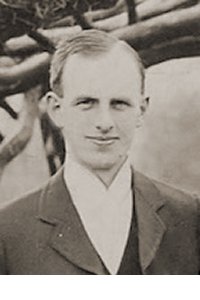 Walter
Stanley Johnson,
known as
W. Stanley, or
simply Stanley,
was born on 9
October 1877 in
Yeovil, probably
at his parents'
home at Newton
Road.
He was the
only child of
glove
manufacturer
William Walter
Johnson
(1853-1928) and
Amelia née Trask
(1850-1931).
Walter
Stanley Johnson,
known as
W. Stanley, or
simply Stanley,
was born on 9
October 1877 in
Yeovil, probably
at his parents'
home at Newton
Road.
He was the
only child of
glove
manufacturer
William Walter
Johnson
(1853-1928) and
Amelia née Trask
(1850-1931).
In the 1881 census William and Amelia, together with Stanley, a servant and a lodger, were listed at 12 Newton Road. William gave his occupation as a glover.
In the early 1870s William had entered into a business partnership with Edward 'Sam' Ewens. The new partnership of Ewens, Johnson & Co Ltd was to be a long-lasting and successful venture that lasted into the 1930s. They built a new factory at the bottom of Stars Lane which still stands today, now known as Foundry House, and had a leather dressing yard in Addlewell Lane. The company was listed many times in Yeovil trade directories between 1883 and 1935.
By the time of the 1891 census, William had become quite prosperous and had moved his family to 42 Hendford Hill which, at the time, was quite a fashionable address. In the census, William gave his occupation as a glove manufacturer and was living with Amelia, 13-year-old Stanley and a domestic servant.
On 5 June 1900, at Holy Trinity church, 22-year-old Stanley married Annie Barrett (1874-1943), known as Nancy. She was the 26-year-old daughter of cheese factor William Henry Barrett, co-founder of Aplin & Barrett. On his marriage certificate, Stanley gave his occupation as a glove manufacturer.
In the 1901 census, Stanley and Annie were listed living on Hendford Hill, with Annie's widowed mother, Mary Barrett, and a servant. Stanley gave his occupation as a clerk glove manufacturer. On 2 March 1902, their son Stanley Rex Johnson (d 1975), was born.
In the 1911 census, Stanley , Annie and Stanley Jnr, together with a "mother's help" and a general domestic servant, were still living on Hendford Hill. Stanley gave his occupation as a "Glover (General)".
At some time after the Great War, Stanley bought Hollands House with its 11 acres of grounds, later part of the Yeovil College campus (see below), where he lived until after the Second World War. The 1939 Register listed him and Annie living there, together with a housekeeper, cook and a housemaid. Stanley recorded his occupation as a Company Director.
As a philanthropist, Stanley gave over £2.5 million (at today's value) for various projects in Yeovil, some of which are outlined below in press cuttings. As pre-war president of Yeovil & Petters United FC, around £1 million (at today's value) went towards the creation of Johnson Park and £40,000 (around £1.5 million at today's value) for the new civic hall for Yeovil that would be named Johnson Hall (now the Octagon Theatre).
After Annie's death in 1943, Stanley moved to Arpthorpe, Hendford Hill, where he died on 3 February 1960. His will was proved in London in July 1960 and his effects were valued at £161,885 18s 1d (around £4.5 million at today's value).
gallery

Walter and Annie's marriage certificate from the Holy Trinity parish register.
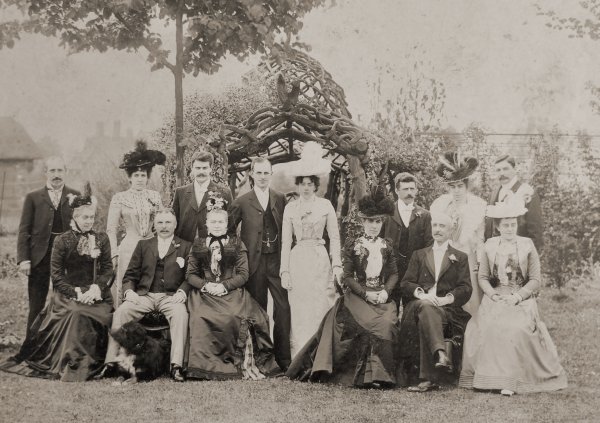
Courtesy of
Chris Dunseath
The wedding group pose for a photograph after the marriage of Walter Stanley Johnson and Annie Barrett on 5 June 1900 (they are standing under the archway). His father, and founder of Ewens, Johnson & Co., William Walter Johnson, is sitting with a dog at his feet.
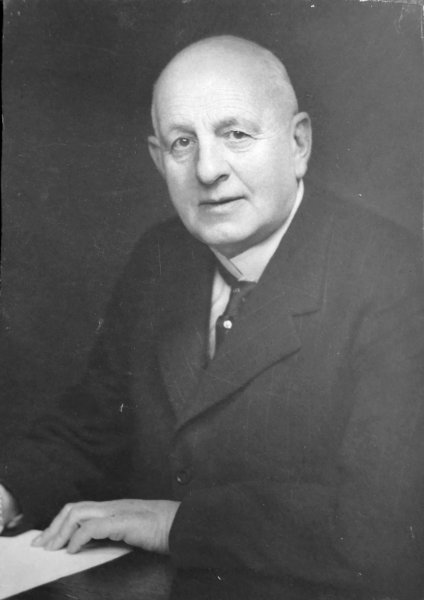
Courtesy of
Chris Dunseath
Walter Stanley
Johnson
1877-1959
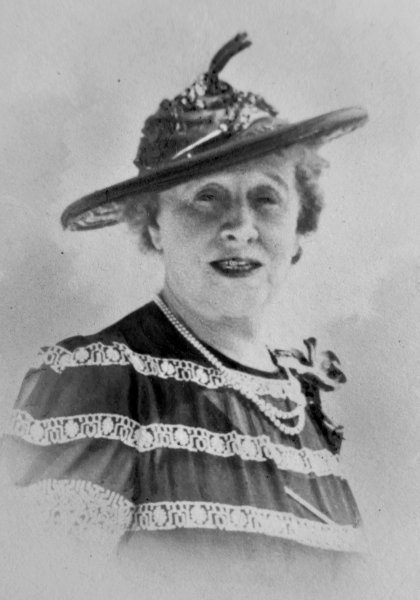
Courtesy of
Chris Dunseath
Annie 'Nancy'
Barrett
1874-1943
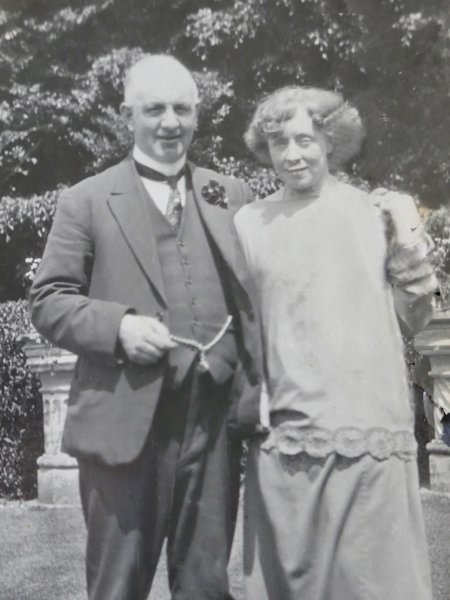
Courtesy of
Chris Dunseath
Stanley and Nancy, photographed in 1925.
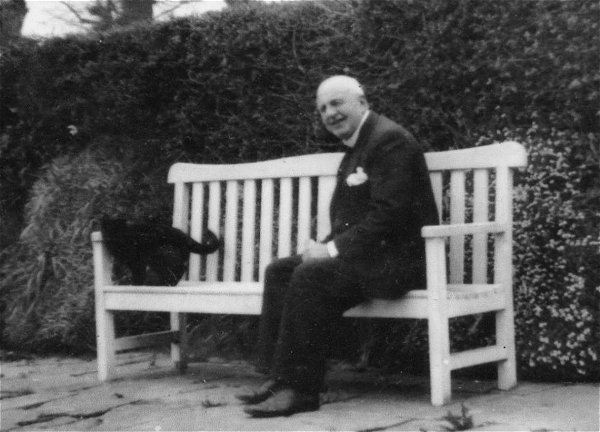
Walter Stanley Johnson, and his cat Sunny Boy, in the garden of Hollands House.
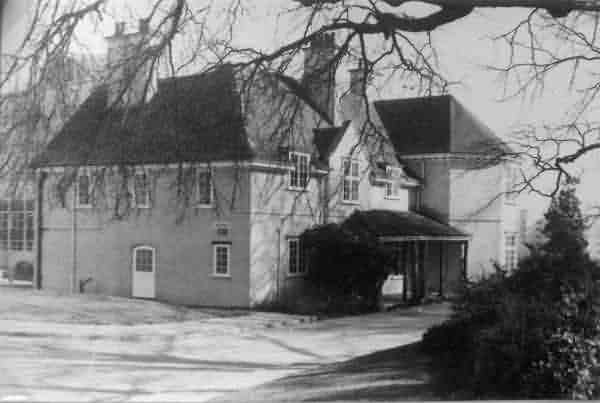
The north and west elevations of Hollands House, photographed in the early 1980s. The house was demolished in 2019 and the site is now a car park.
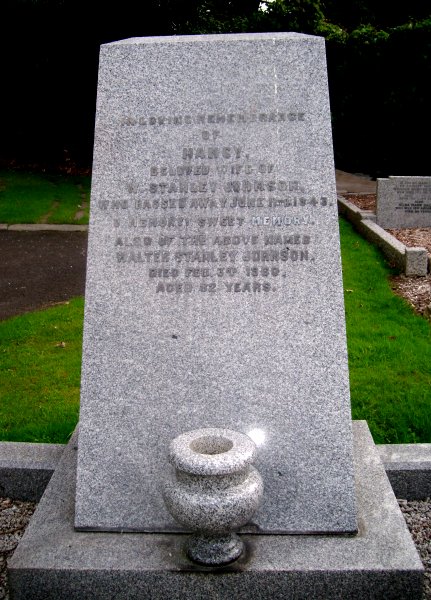
Stanley and Nancy's shared headstone in Yeovil Cemetery.
![]()
Some evidence of Yeovil's greatest benefactor
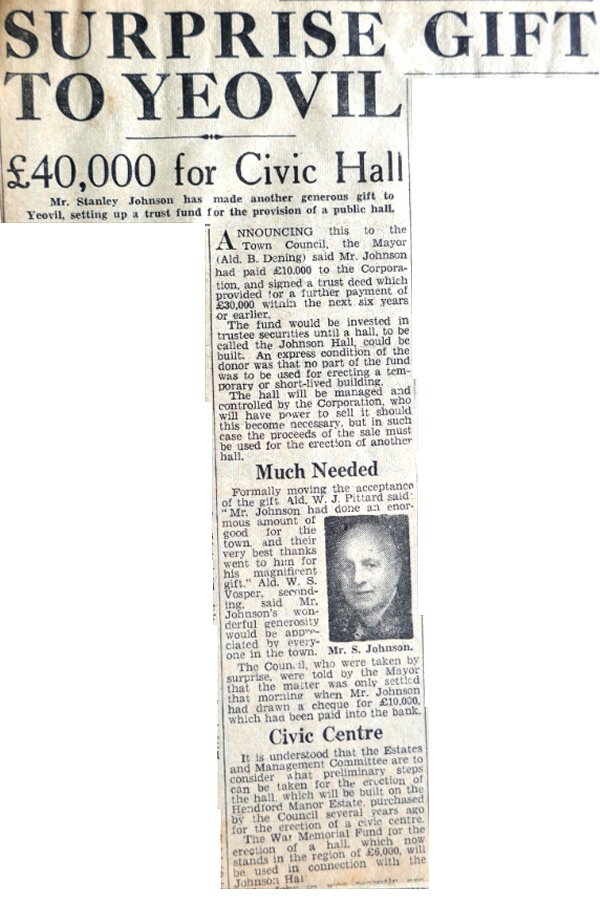
Courtesy of
Chris Dunseath
A report in the 14 February 1950 edition of the Bristol Evening Post, announcing the donation of £40,000 (around £1.5 million at today's value) for the new civic hall for Yeovil that would be named Johnson Hall.
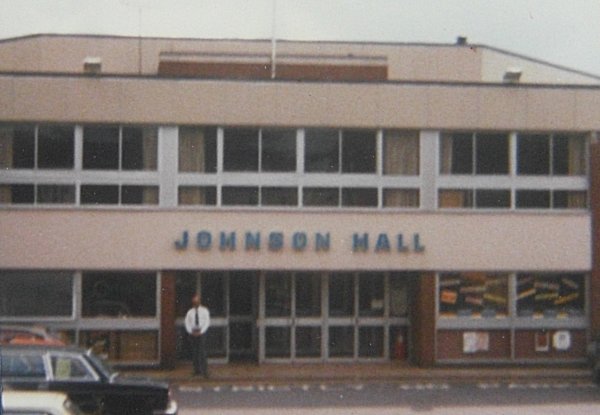
Courtesy of
Butch Bishop
Johnson Hall, today's Octagon Theatre, opened in 1974. Photographed in the late 1970s.
![]()

Courtesy of
Chris Dunseath
A report in the 2 July 1951 edition of the Bristol Evening Post, announcing the donation of £7,000 (around £240,000 at today's value) for improvements at Johnson Park. This sum being in addition to the earlier gift of £18,000 (around £700,000 at today's value), used to acquire the ground.
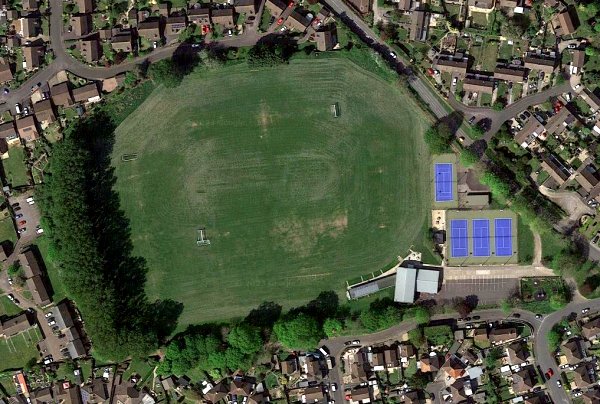
Courtesy of Mr
Google
![]()
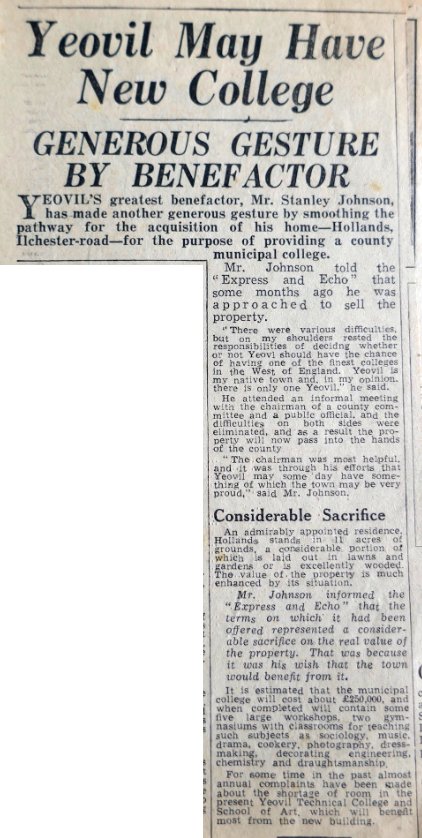
Courtesy of
Chris Dunseath
An article from the 18 July 1953 edition of the Express and Echo, outlining Stanley's part in the birth of Yeovil College.
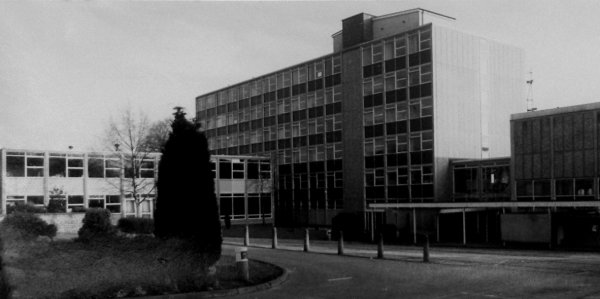
Yeovil College, built in the grounds of what had been Sidney's home.
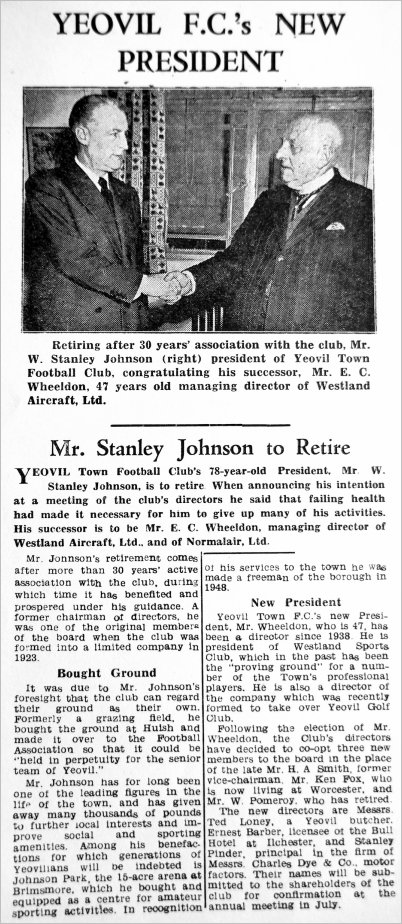
Courtesy of
Chris Dunseath
From the 25 February 1955 edition of the Western Gazette.